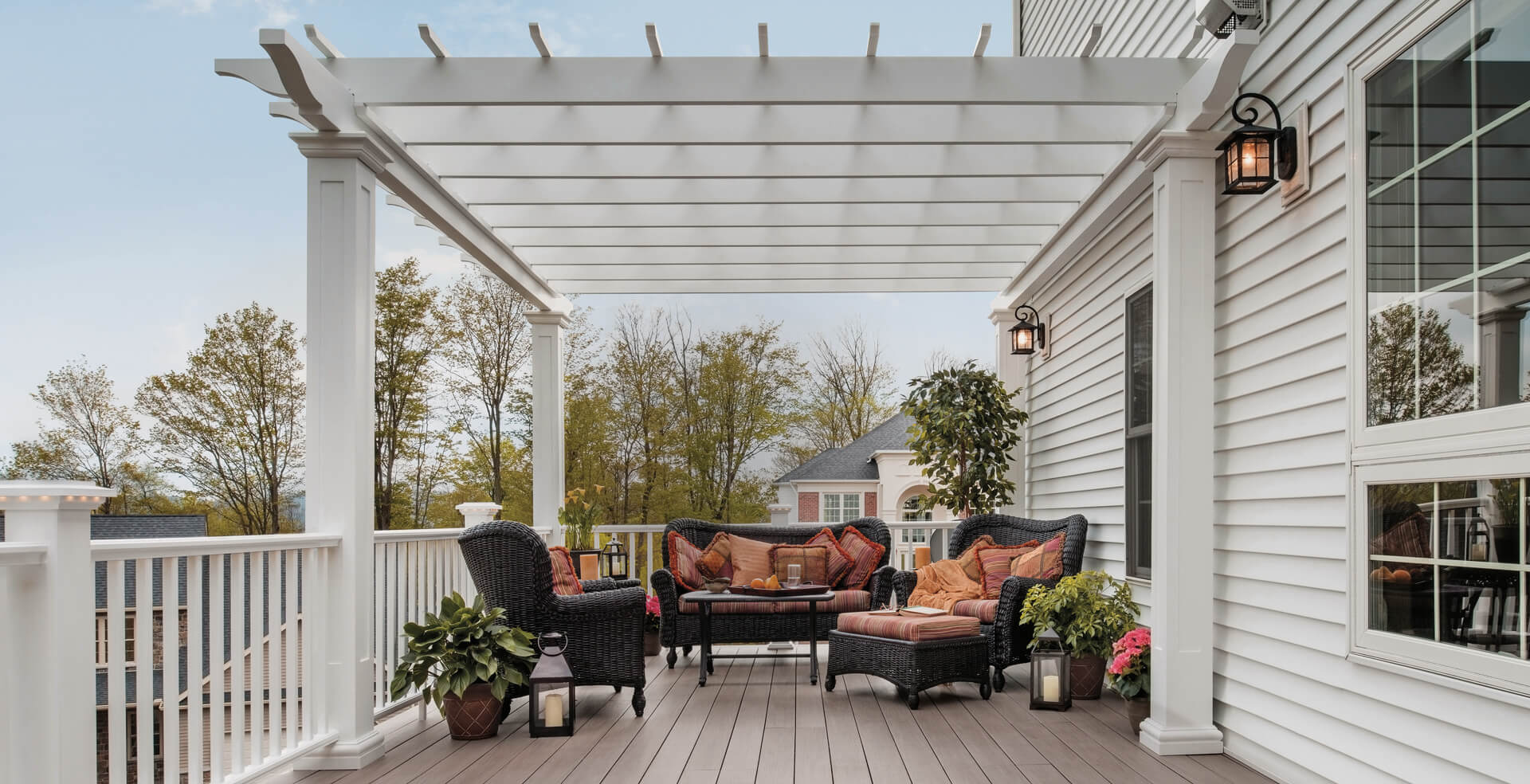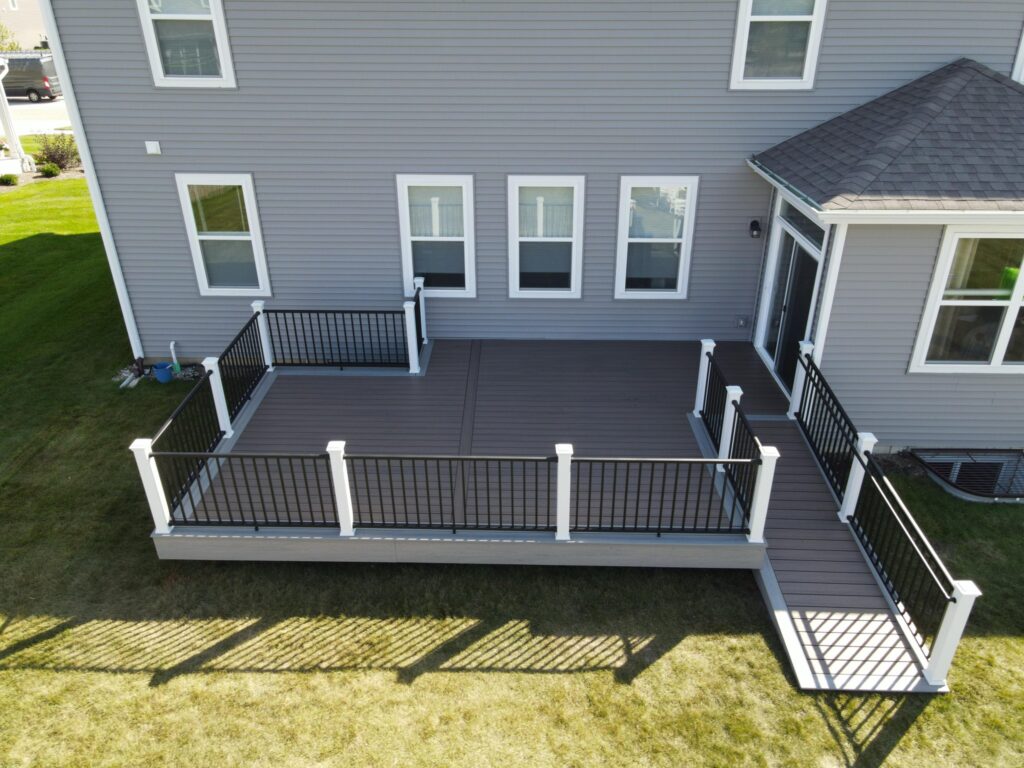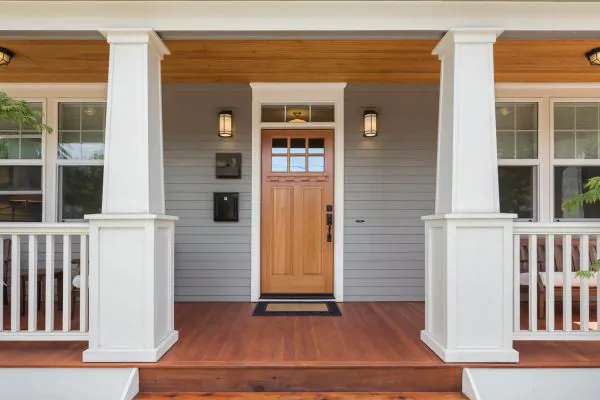Discovering Different Types and Advantages of Deck: A Comprehensive Overview
The exterior deck is more than simply an expansion of one's living room; it's a testament to individual design, a location for social gatherings, and a haven to unwind. The option of decking product dramatically affects these aspects, with choices ranging from the traditional attraction of wood to the functionality of composite, and the toughness of light weight aluminum. Understanding the subtleties of these materials is crucial, so let's start our expedition, one deck type at once.
Comprehending the Essentials of Decking Product
Outdoor decking material offers as the backbone of any kind of deck project, determining the general visual appeals, resilience, and performance of the final item. The selection of material significantly influences the deck's life-span, upkeep demands, and resistance to elements. Recognizing the fundamentals of outdoor decking product is vital for a successful deck job. Composite Deck Builders Near Me.
Benefits and Drawbacks of Timber Decks
In reviewing deck types, recognizing the advantages and disadvantages of wood decks comes to be important. This entails considering aspects such as the sort of wood chosen and its effect on the deck's efficiency. The succeeding conversation will check out these factors thoroughly to provide an extensive sight of the advantages and downsides related to wood decks.

Wood Deck: Cons & pros
The charm of timber decks can not be overemphasized. They show a timeless allure and cozy visual that numerous homeowners locate alluring. This all-natural product is versatile, permitting for a series of design opportunities, and can offer an excellent return on financial investment.
Nevertheless, timber decks also come with specific downsides. Its longevity can be less than various other outdoor decking materials, especially if not effectively cared for.
Choosing Your Wood Kind

Exploring the Advantages of Compound Decking
Turning focus to composite decking, it uses one-of-a-kind benefits. Its longevity outperforms traditional wood in rough weather condition conditions, lowering the demand for frequent maintenance. Additionally, it provides a pleasing visual allure with variable layout options.
Composite Decking Sturdiness Perks
Regardless of the plethora of decking alternatives available in the market, composite decking stands out for its durability. This type of outdoor decking, made from a mix of timber and plastic, gives a resistant, long-lasting system immune to components that commonly weaken various other materials (Local Deck Builders Near Me). It doesn't warp, splinter, or crack, guaranteeing a consistently smooth surface area for several years. In addition, it's unsusceptible to damage from parasites such as termites, adding to its durability. The inherent resistance to fading, staining, and scraping is one more noteworthy advantage. This makes it a perfect choice for high-traffic areas or exterior spaces subjected to severe weather. In summary, the durability advantages of composite decking give a sustainable, cost-efficient option for outdoor home.
Maintenance of Compound Decks
In addition to durability, composite outdoor decking flaunts a major benefit in terms of maintenance. Unlike standard timber decks, composite decks are not susceptible to rot, warp, or insect damages, thus substantially minimizing the requirement for routine repairs and substitutes. The low-maintenance nature of composite decks not only offers convenience of maintenance however additionally contributes to their long-lasting cost-effectiveness.
Visual Allure and Irregularity

The Climbing Appeal of Aluminum Decks: Why Choose Them?
As the demand for long lasting and low-maintenance outdoor decking rises, aluminum decks are progressively coming to be the best option for lots of homeowners and home builders. These decks, made from a light-weight yet tough metal, use a number of advantages over typical wood or composite decks. To Recommended Reading begin, light weight aluminum is normally immune to the elements, meaning it won't warp, crack, or discolor with time. This makes it a cost-effective selection in the long run. Furthermore, its non-porous surface area stops the development of pests, fungi, or molds, making sure a healthy and clean outdoor space. Light weight aluminum decks are also eco friendly, as they are frequently made from recycled products and can be reused once again at the end of their life-span. Their sleek and contemporary aesthetic charm fits well right into contemporary home styles.
Upkeep Tips for Different Decking Materials
Regardless of the range of decking materials available on the market, each comes with its own collection of upkeep requirements to make sure durability and aesthetic appeal. All-natural timber decks need normal sealing or tarnishing to stop weather condition damage, while composite decks need regular cleaning with soap and water to get rid of spots and debris. On the other hand, light weight aluminum decks need much less upkeep, only requiring occasional rinsing with water to keep them tidy. Treated wood decks, although immune to rot and pests, likewise need regular securing to keep dampness out. Therefore, understanding these maintenance requires is essential for deck owners to maximize their financial investment and keep their decks looking their ideal for years ahead.
When Choosing Your Deck Kind, factors to Take Into Consideration.
Composite decks resist moisture well, making them excellent for stormy or damp regions. While some may prefer an elegant, unique wood deck, spending plan restraints hop over to these guys may require a more affordable choice like pressure-treated wood. Therefore, environment, lifestyle, cost, and maintenance are vital article factors to consider in deck selection.
Conclusion
Wood decks enchant with natural beauty, while composite and aluminum varieties supply toughness and low maintenance. Before committing to a specific deck kind, home owners must very carefully take into consideration the benefits, downsides, and upkeep needs of each product.
In evaluating deck kinds, recognizing the pros and cons of timber decks ends up being important.In spite of the wide variety of outdoor decking alternatives available in the market, composite outdoor decking stands out for its longevity. Unlike typical wood decks, composite decks are not at risk to rot, warp, or insect damages, thus considerably minimizing the demand for regular repairs and replacements. These decks, made from a light-weight yet strong steel, supply several benefits over typical timber or composite decks. All-natural timber decks need regular sealing or staining to avoid weather damage, while composite decks require routine cleaning with soap and water to get rid of discolorations and debris.